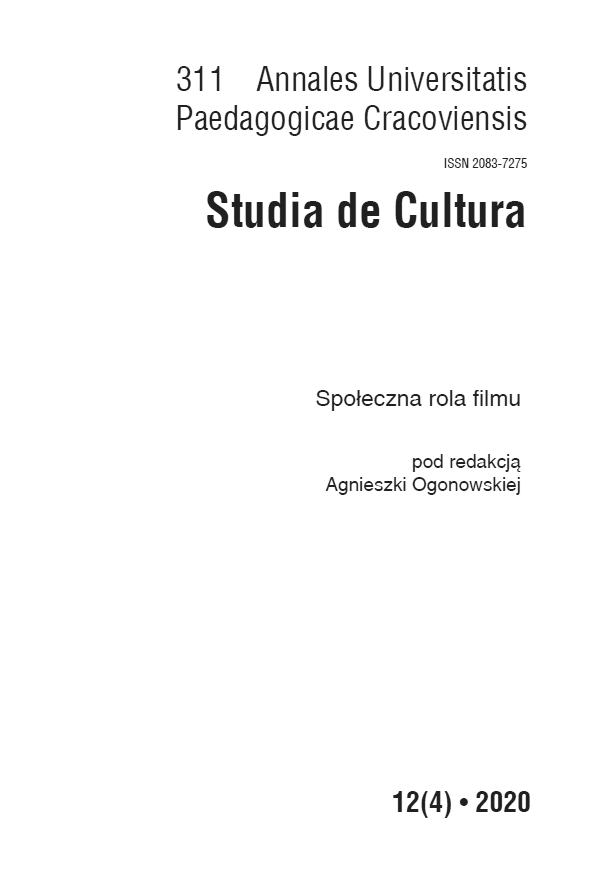Abstrakt
W pracy omawiamy różne wizje technologii jako środka pomocowego w przypadkach kryzysu na przykładzie wybranych filmów fantastycznonaukowych. Kryzys w życiu człowieka występuje, gdy zasoby psychiczne, jakimi dysponuje, nie wystarczają mu na poradzenie sobie z daną sytuacją i musi on sięgnąć po inne dostępne rozwiązania. Jednym z takich środków zaradczych coraz częściej staje się technologia - od roku 1966, w którym powstała ELIZA, pierwszy program mający spełniać funkcję terapeuty, aż do czasów dzisiejszych, w których aplikacje na smartfony pomagają w pracy z dziećmi z autyzmem, a technologia VR pozwala żołnierzom na przepracowanie swoich traum w bezpiecznych warunkach. Z wielką ciekawością obserwujemy rozwój technologii i w przyszłości oczekujemy większych możliwości jej zastosowania w terapii. Niestety na razie musimy się zadowolić filmami science fiction.
Bibliografia
Appel Markus, Krause Stefan, Gleich Uli, Mara Martina. 2016. „Meaning Through Fiction. Science Fiction and Innovative Technologies”. Psychology of Aesthetics, Creativity, and the Arts t. 10, nr 4. 472-480.
Bellani Marcella, Fornasari Livia, Brambilla Paolo. 2011. „Virtual Reality in Autism. State of the Art”. Epidemiology and Psychiatric Sciences nr 20(3). 235-238.
Bhattacharya Soumee, Herrera-Molina Rodrigo, Sabanov Victor, Ahmed Tariq, Iscru Emilia, Stöber Franziska, Richter Karin, Dieter-Fischer Klaus, Angenstein Frank, Goldschmidt Jürgen, Beesley Philip, Balschun Detlef, Smalla Karl-Heinz, Gundelfinger Eckart, Montag Dirk. 2017. „Genetically Induced Retrograde Amnesia of Associative Memories after Neuroplastin Ablation”. Biological Psychiatry nr 81(2). 124-135.
Bouck Emily, Savage Melissa, Meyer Nancy, Taber-Doughty Teresa, Hunley Megan. 2014. „High-Tech or Low-Tech? Comparing Self-Monitoring Systems to Increase Task In dependence for Students with Autism”. Focus on Autism and Other Developmental Disabilities t. 29(3). 156-167.
Ghandeharioun Asma, McDuff Daniel, Czerwinski Mary, Rowan Kael. 2019. EMMA. An Emotion-Aware Wellbeing Chatbot. https.//arxiv.org/pdf/1812.11423.pdf. (dostęp: 28.12.2019).
Hartman David. 1986. „Artificial Intelligence or Artificial Psychologist? Conceptual Issues in Clinical Microcomputer Use”. Professional Psychology. Research and Practice t. 17, nr 6. 528-534.
Heaton Jeanne Albronda. 2003. Podstawy umiejętności terapeutycznej. Jolanta Bartosik (przeł.). Gdańsk.
Liu Xiu, Ramirez Steve, Tonegawa Susumu. 2014. „Inception of a False Memory by Optogenetic Manipulation of a Hippocampal Memory Engram”. Philosophical Transactions of the Royal Society B nr 369(1633).
Luxton David. 2014. „Artificial Intelligence in Psychological Practice. Current and Future Applications and Implications”. Professional Psychology. Research and Practice t. 45, nr 5. 332-339.
Matei Adrienne. 2017. „New Technology Is Forcing Us to Confront the Ethics of Bringing People Back from the Dead.” https.//qz.com/896207/death-technology-will-allow-grieving-people-to-bring-back-their-loved-ones-from-the-dead-digitally/. (dostęp: 28.12.2019).
Reger Greg, Gahm Gregory. 2008. „Virtual Reality Exposure Therapy for Active Duty Soldiers”. Journal of Clinical Psychology nr 64(8). 940-946.
Scassellati Brian. 2000. “How Developmental Psychology and Robotics Complement Each Other”. http.//groups.csail.mit.edu/lbr/hrg/2000/WDL2000.pdf. (dostęp: 28.12. 2019).
Seltzer Mark. 2015. Kultura rany. W: Antologia studiów nad traumą. Tomasz Łysak (red.). Kraków.
Sharf Richard. 1985. „Artificial Intelligence. Implications for the Future of Counseling”. Journal of Counseling and Development t. 64. 34-37.
Wissing Benno, Reinard Marc-Andre. 2018. „Individual Differences in Risk Perception of Artificial Intelligence”. Swiss Journal of Psychology nr 77(4). 149-157.
Filmografia
Marjorie Prime. 2017. Michael Almereyda (reż.).
Ona. 2013. Spike Jonze (reż.).
Robot i Frank. 2012. Jake Schreier (reż.).
Upgrade. 2018. Leigh Whannell (reż.).
Wielka Szóstka. 2013. Don Hall, Chris Williams (reż.).
Zakochany bez pamięci. 2004. Michel Gondry (reż.).

